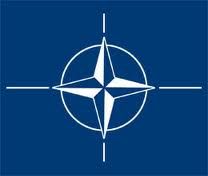Secretary General thanks Greece for its important contributions to NATO

Visiting Athens on Tuesday (6 October 2020), Secretary General Jens Stoltenberg met President Katerina Sakellaropoulou, Prime Minister Kyriakos Mitsotakis, Foreign Minister Nikos Dendias and Defence Minister Nikos Panagiotopoulos. In his meetings, the Secretary General addressed the security situation in the region. He praised Greece's role as a valued Ally and its contributions to NATO missions, from Afghanistan to Kosovo.
Mr. Stoltenberg stressed that NATO is an important platform for dialogue, where Allies from Europe and North America come together every day to discuss issues that affect our security.
The Secretary General commended the constructive engagement of Greece and Turkey at NATO Headquarters, which enabled the establishment of a bilateral military de-confliction mechanism to reduce the risks of incidents and accidents in the eastern Mediterranean. He stressed that the de-confliction mechanism can help to create the space for diplomatic efforts to address the underlying issues. Mr. Stoltenberg expressed his firm hope that the underlying dispute between two Allies can now be addressed purely through negotiations and in the spirit of Allied solidarity and international law.
For several years, Greece has been on the front line of the refugee and migrant crisis. Mr. Stoltenberg reassured Greece of NATO's solidarity and thanked Athens for its efforts to cut the lines of human smuggling. The Secretary General also commended Greece for investing 2% of GDP in defence and its commitment in collective security.
Remarks
by NATO Secretary General Jens Stoltenberg at the joint press point with Greek Prime Minister Kyriakos Mitsotakis
(As delivered)
Prime Minister Mitsotakis, dear Kyriakos,
Thank you for that warm welcome. It's great to be back in Athens, great to see you again.
And Greece is really a valued Ally.
You are committed to our shared security.
And you contribute to NATO in many different ways.
With contributions to NATO missions, from Afghanistan to Kosovo. Your jets help keep the skies over Montenegro safe. And your naval forces are an important part of NATO's maritime posture. So we are grateful for all your contributions.
Then of course we also welcome the fact that Greece spends more than 2 percent investing of GDP on defence, and we also welcome the announcement of how you are going to further modernize your armed forces. This will strengthen NATO.
All these contributions keep Greece strong.
And they keep NATO strong.
We discussed the security situation in the wider region and NATO's response.
For several years, Greece has been on the front line of the refugee and migrant crisis.
NATO stands with you in solidarity.
NATO's mission in the Aegean Sea supports Greek and Turkish authorities, and the EU's border agency Frontex, in their efforts to cut the lines of human smuggling.
And I thank Greece for your contributions to this deployment. It also shows how NATO helps to strengthen the cooperation between NATO Allies and the European Union, dealing with an issue which is of great importance for all of us.
We also discussed the recent tensions in the Eastern Mediterranean.
Through the constructive engagement of Greece and Turkey at NATO Headquarters, we have now established a bilateral military de-confliction mechanism.
This includes a commitment to use a secure hotline between Greece and Turkey, available 24 hours a day, to facilitate de-confliction at sea and in the air.
I welcome this and pay tribute to both Allies for your efforts. And we stand ready to develop it further. The de-confliction mechanism can help to create the space for diplomatic efforts.
It is my firm hope that the underlying disputes between two Allies can now be addressed purely through negotiations.
In the spirit of Allied solidarity and international law.
We also discussed concerns about Russia's growing military presence in the Mediterranean region. This has implications for our security, so we must address it together.
Our Alliance is an important platform for dialogue, where Allies from Europe and North America come together every day
to discuss issues that are of importance for our security. Regardless of how difficult some of these issues may be.
Because we know that we are stronger by addressing them together. So our Alliance is strong because we stand together.
So Prime Minister, it's great to see you again. Thank you for your important and tireless support to our Alliance. And thank you for timely discussions here today.
And thank you for your strong personal commitment to our transatlantic Alliance.
Thank you so much.
MORE
Military de-confliction mechanism between Greece and Turkey established at NATO
following a series of technical meetings between the Military Representatives of Greece and Turkey at NATO Headquarters in Brussels, a bilateral military de-confliction mechanism was established on Thursday (1 October 2020). The mechanism is designed to reduce the risk of incidents and accidents in the Eastern Mediterranean. It includes the creation of a hotline between Greece and Turkey, to facilitate de-confliction at sea or in the air.
The technical military de-confliction talks, which began in early September, were initiated by NATO Secretary General Jens Stoltenberg after high-level contacts with both Greece and Turkey. Mr. Stoltenberg said, "I welcome the establishment of a military de-confliction mechanism, achieved through the constructive engagement of Greece and Turkey, both valued NATO Allies. This safety mechanism can help to create the space for diplomatic efforts to address the underlying dispute and we stand ready to develop it further. I will remain in close contact with both Allies."
Military de-confliction between Allies is a role NATO has played before. In the 1990's, NATO helped establish a similar mechanism in the region, which was effective in helping to reduce tensions and provide the space for broader diplomatic talks.